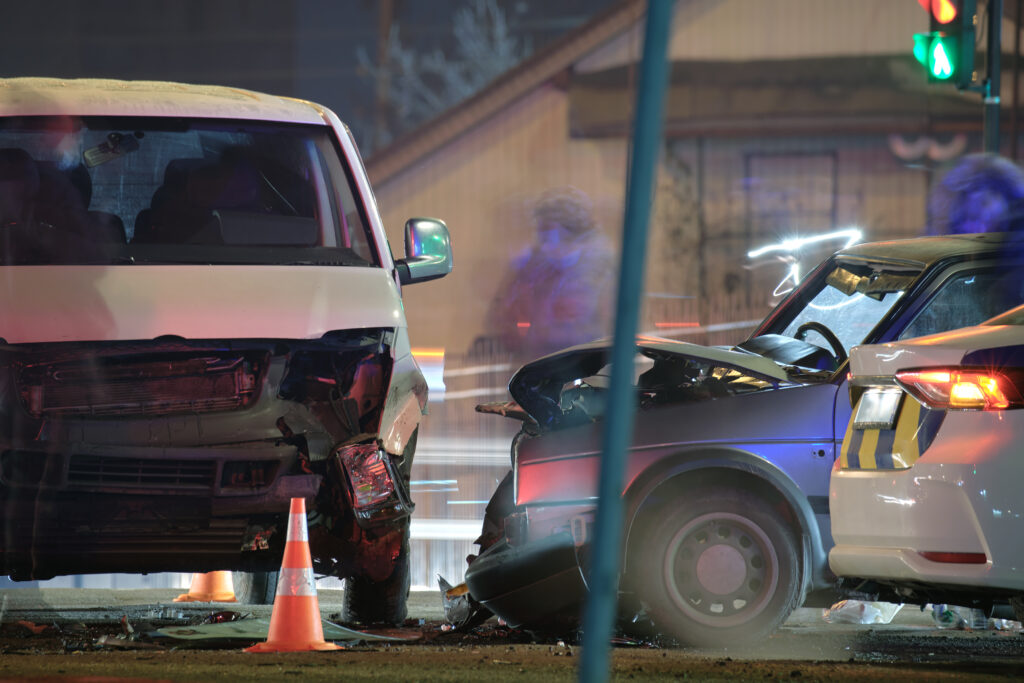
A collision with a commercial truck isn’t just “another car wreck.” These big rigs carry unique risks—massive size, multiple layers of liability, and strict federal regulations. Whether it happens on Randall Road in Algonquin, I‑90 near Huntley, or somewhere out near Rockford, knowing your rights under Illinois personal injury law can make all the difference between a fair recovery and a lowball settlement. As experienced truck accident attorneys in Illinois, we’ll walk you through what you can—and must—do from the moment the crash ends to protect your health, your claim, and your future.
1. Your Right to Immediate Medical Care
What you must do:
Seek Emergency Treatment: Even if you feel okay, trucking collisions can cause internal injuries—spinal trauma, organ damage, or traumatic brain injury—that surface later.
Follow Through: Keep every bill, imaging report, prescription, and therapy record.
Why it matters:
Under Illinois law, linking your injuries directly to the crash is the cornerstone of any claim. Early, consistent medical records shut down insurer defenses that your harm arose elsewhere.
2. Your Right to a Police Report
What you must do:
Call 911: Request law enforcement and EMS on the scene.
Obtain the Report: Ask for a copy or at least the report number as soon as it’s available.
Why it matters:
A detailed police report documents vehicle positions, driver statements, traffic‑law violations, and witness info. In truck collisions—where multiple drivers or companies may share fault—a thorough report is invaluable for your Illinois personal injury law claim.
3. Your Right to Evidence Preservation
What you must do:
Photograph the Scene: Capture the truck’s license plate, company logo, cargo shifts, skid marks, road conditions, and traffic controls.
Secure Witness Contacts: Drivers, passengers, pedestrians, and bystanders who saw what happened.
Preserve Physical Evidence: Torn clothing, damaged personal items, or even truck debris.
Why it matters:
Trucking companies often repair or replace tractors, delete dash‑cam footage, and overwrite electronic logging‑device (ELD) data within days. Sending a “spoliation letter” within 24 hours – something your Northern Illinois personal injury lawyer can handle – forces them to preserve crucial evidence.
4. Your Right to Federal-Record Inspection
What you must do:
Demand ELD Records: Truckers’ hours‑of‑service logs, break records, and driver‑inspection reports.
Request Maintenance Logs: Brake checks, tire rotations, oil changes, and DOT‑required inspections.
Obtain Cargo Manifests: Weight tickets and load‑securing details.
Why it matters:
Violations of Federal Motor Carrier Safety Regulations (FMCSRs) can amount to per se negligence. Proof that the driver exceeded hours‑of‑service limits or skipped safety inspections directly supports your truck accident claim.
5. Your Right to Uninsured/Underinsured Coverage
What you must do:
Notify Your Insurer: Open a UM/UIM claim if the truck driver lacks sufficient coverage.
Consult Before Statements: Provide only basic facts and let your lawyer handle recorded statements.
Why it matters:
Commercial vehicles carry high limits, but they can still fall short—especially in multi‑vehicle pileups or catastrophic crashes. Your own UM/UIM policy may be your backup source of funds.
6. Your Right to Damages for All Your Losses
Under Illinois law, you can pursue:
Economic Damages: Medical bills, future care planning, lost wages, diminished earning capacity, vehicle repair or replacement, and home modifications.
Non‑Economic Damages: Pain and suffering, emotional distress, loss of enjoyment of life, and loss of consortium.
Punitive Damages: In rare cases—gross negligence or intoxication—additional compensation meant to punish the wrongdoer.
A detailed damage analysis prepared by your Algonquin personal injury lawyers or Rockford personal injury lawyers ensures insurers can’t lowball or ignore any category of harm.
7. Your Right to Timely Legal Action
Statute of Limitations:
Illinois gives you two years from the crash date to file a lawsuit. Certain government‑involved crashes may have shorter notice rules.
Why it matters:
Waiting even a week can imperil your claim—witnesses disappear, evidence vanishes, and deadlines slip by. Early consultation with Shindler & Shindler triggers preservation letters, evidence gathering, and legal deadlines, keeping your rights intact.
8. Your Right to Skilled Legal Representation
What to expect from your truck accident attorney in Illinois:
Direct Access: Speak with Rob or Keith, not a call center.
Aggressive Investigation: Coordinating with crash‑reconstructionists, DOT experts, and medical specialists.
Strategic Negotiation: Presenting a full‑value demand backed by airtight evidence.
Trial Readiness: Filing suit when insurers won’t play fair—and taking cases to jury verdict when needed.
Having a focused legal team means you can concentrate on healing, not deadlines, depositions, or insurer tactics.
Next Steps: Protect Your Rights Today
- Get Medical Care & Police Report
- Document Every Detail
- Notify Insurers—Then Call Us
- Consult Shindler & Shindler for a free, no‑obligation review
Your life doesn’t stop after a truck hits you. As leading Northern Illinois personal injury lawyers, we’re here to ensure your claim moves forward while you focus on recovery. Contact us now—Rob and Keith answer their own phones—and let’s build the strongest case possible under Illinois personal injury law.